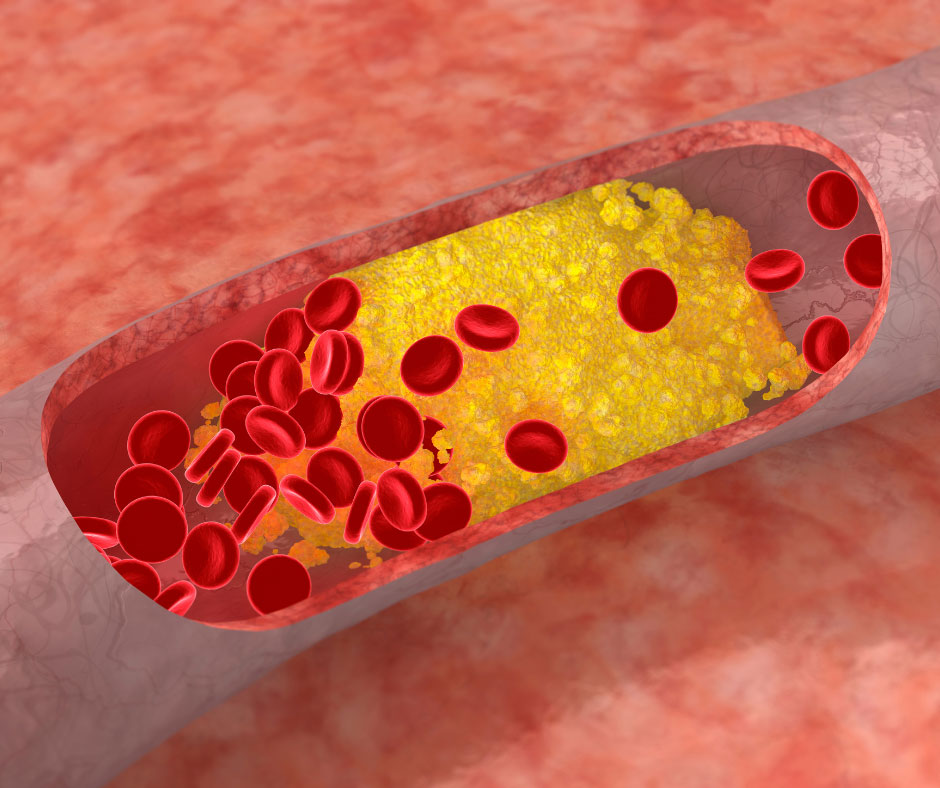It’s 2019 and we live in an exciting time where people are paying attention to their health! No more smoking sections in restaurants, calories are listed on menus, and exercising is all the rage. Veganism is cool, vaping is gross, and juice cleanses are everything. It’s 2019 and things are looking up! Except… it’s 2019 and despite all the changes, heart disease is still the number one cause of death in the United States. But how? It seems we are taking all the necessary steps to curb this disease. And we certainly can’t help our genetics so what are we missing? It’s almost as if the answer could be staring us in the face…
We all have the same memory. Sitting in a plastic covered chair, our feet dangling, a light in our eyes and a metal hook in our mouth. Of course, I’m referring to a trip to the dentist. As children, our hearts would race as we faced the dreaded question “How often do you floss?” More often than not, our answer was a lie. If we knew flossing was linked to heart health would we have changed our habits?
According to a 2014 study published in the American Journal of Preventive Medicine, there is a direct link between gum health and heart health. The two characteristics that heart disease and gum disease have in common are bacteria and inflammation. Bacteria can hide in infected gum tissue and in the underlying connective tissue, resulting in inflammation. When the infection is left untreated, it can result in periodontitis, (ie, gum disease). Those same bacteria can enter the bloodstream, possibly resulting in cardiovascular complications. Bacterial presence in the bloodstream can mean infection and inflammation. This can cause blood vessels to swell, reducing blood flow, and increasing the risk of blood clots. Another common cardiovascular complication is atherosclerosis, the presence of fatty deposits that can clog arteries. Some studies have shown that there have been oral bacteria found in those fatty deposits in many different areas of the body.
The most frightening fact about heart disease is that it can affect anyone at any time. It does not discriminate. According to The Centers for Disease Control and Prevention (CDC), about 790,000 people in the United States suffer from a heart attack every year and 610,000 people die of heart disease every year—that’s 1 in every 4 deaths! A recent study reported from the American College of Cardiology states that for the past decade, the proportion of people under 40 suffering from heart attacks has been ticking up 2% every year. And let’s not forget that heart disease is the leading killer among both men and women in the United States.
Of course, flossing isn’t a cure all. While dental health and cardiovascular health have been linked, cleaning our teeth isn’t the straw that’s going to break heart disease’s back. But if you’re willing to try injecting fillers to get rid of those fine lines, then you definitely aren’t afraid of cleaning your mouth to ward of America’s number one killer, right?
We live in a time where we have the world in our hands. We can order groceries, get directions, and even video chat with someone on the other side of the planet, all with the swipe of a finger. We like to have control and we like instant gratification. But if we just take those same fingers, wrap some floss around them, and clean our teeth, our hearts might thank us for it later.
References:
American College of Cardiology: https://www.acc.org/about-acc/press-releases/2019/03/07/08/45/heart-attacks-increasingly-common-in-young-adults
American Journal of Preventive Medicine: https://www.sciencedirect.com/science/article/pii/S0749379714001536
Centers for Disease Control and Prevention: https://www.cdc.gov/dhdsp/data_statistics/fact_sheets/fs_heart_disease.htm
Chhibber-Goel J, Singhai V, Bhowmik D. Linkages between oral commensal bacteria and atherosclerotic plaques in coronary artery disease patients. NPJ Bioflims Microbiomes. 2016 Dec 19;2:7https://www.ncbi.nlm.nih.gov/pmc/articles/PMC5460270/
Do HL, Ford P, Leishman S. Cardiovascular disease and the role of oral bacteria. J Oral Microbiol 2010 Dec 21https://www.ncbi.nlm.nih.gov/pmc/articles/PMC3084572/
Harvard Health Publishing: https://www.health.harvard.edu/heart-health/why-your-gums-are-so-important-to-your-health









